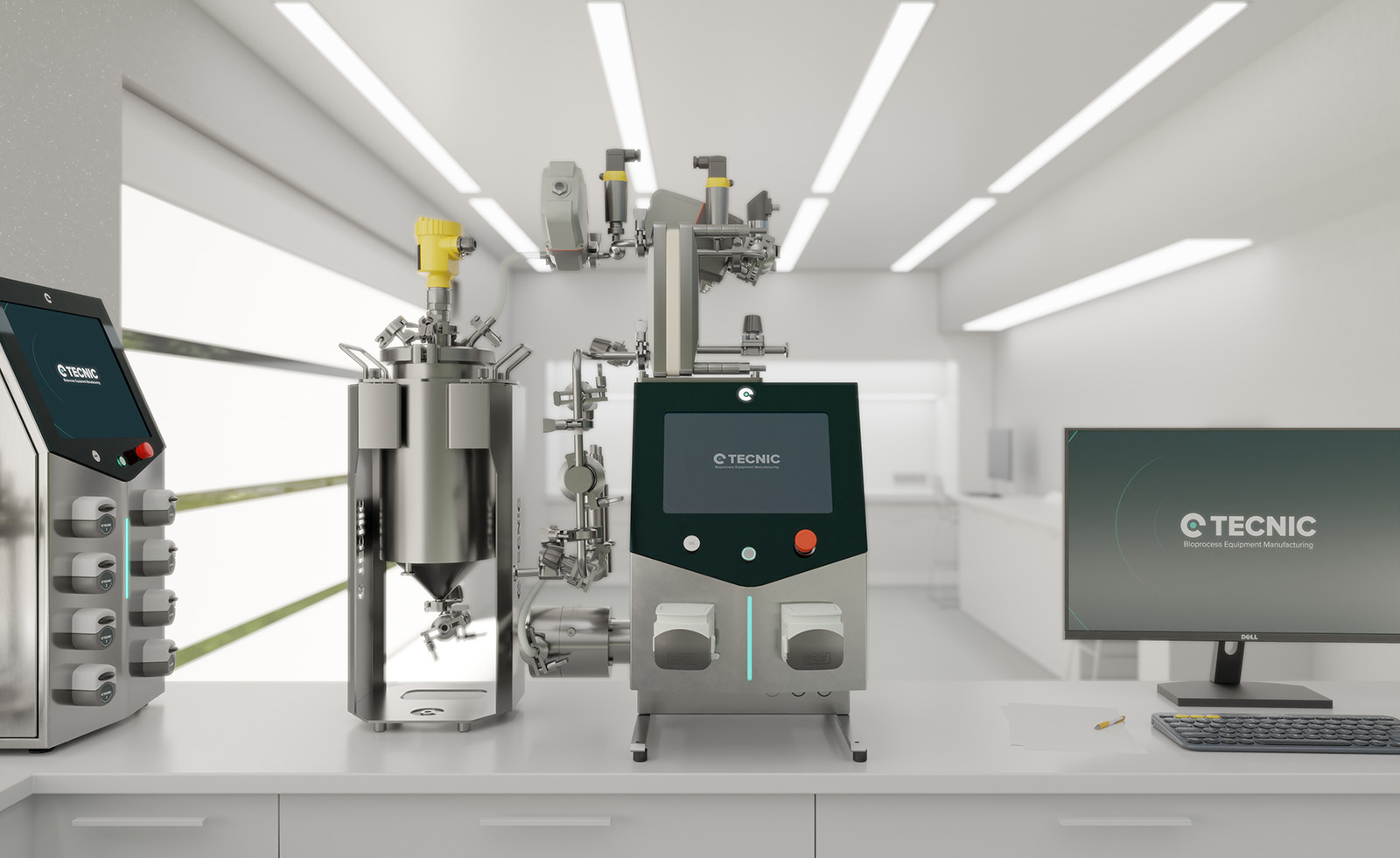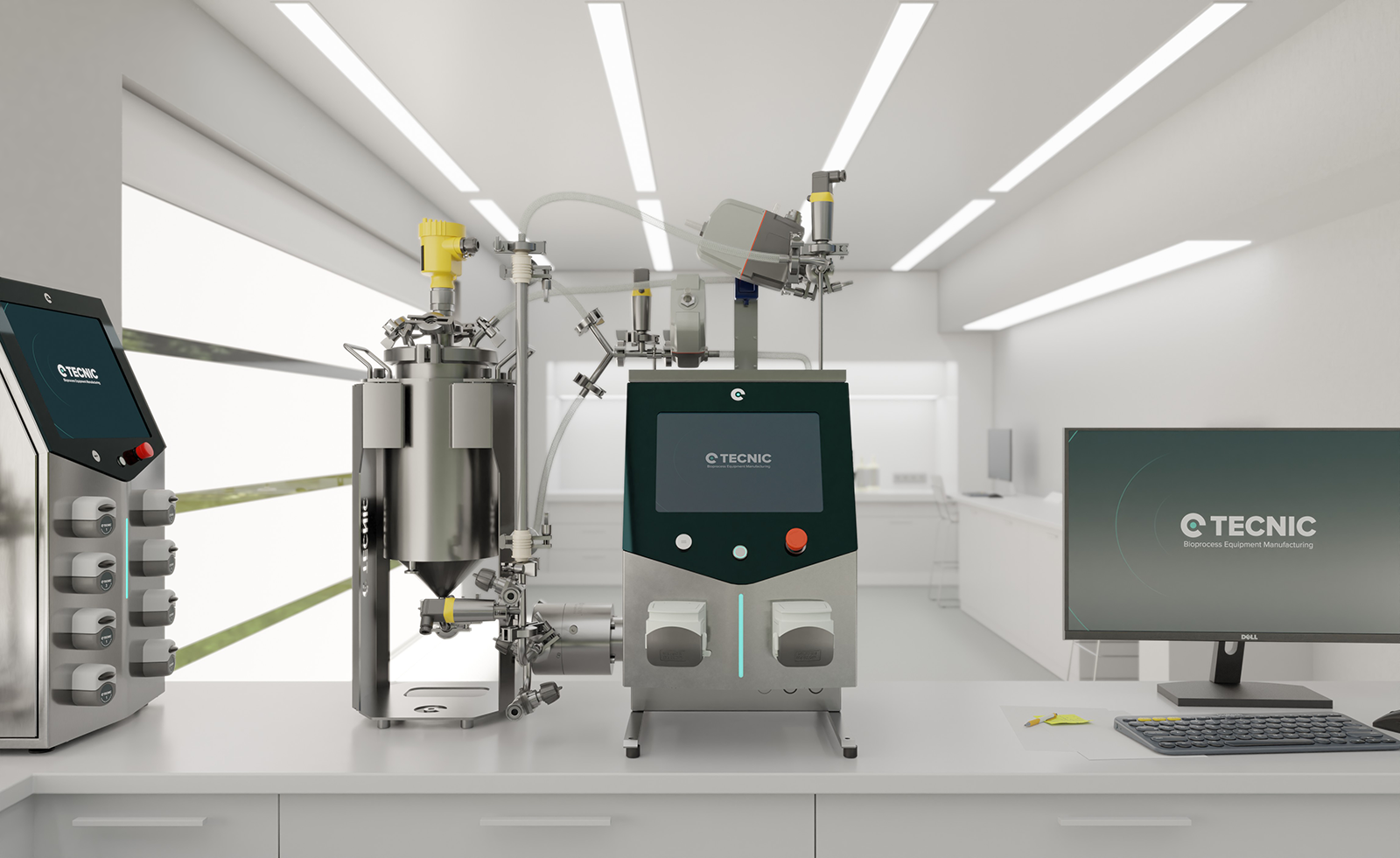Coming soon
We are finalizing the details of our new equipment. Soon, we will announce all the updates. If you want to receive all the latest news about our products, subscribe to our newsletter or follow our social media channels.

Sign Up
Stay informed about our product innovations, best practices, exciting events and much more! After signing up for our newsletter, you can unsubscribe at any time.
Rushton impeller
The Rushton impeller, also known as the flat disk impeller. It emerged as a solution to the challenges of mixing and oxygenation in the biotechnology industry. Its innovative design was quickly recognized for its exceptional ability to generate turbulent flow, making it a standard in the sector for decades.

Pitch blade impeller
This component is crucial for optimizing mixing and mass transfer in cell culture processes. Its specific design facilitates homogeneous distribution of nutrients and gases, essential for maintaining cell viability and growth under optimal conditions.

Rushton impeller
Characterized by its radial blades mounted perpendicularly to the shaft, the Rushton impeller is engineered to provide high shear rates and excellent gas dispersion, which is particularly effective in microbial. In biotechnological applications involving bacteria and yeast, the Rushton impeller excels by ensuring homogeneous mixing and optimal gas distribution, even in high-density cultures.


Cassette
We understand the importance of flexibility and efficiency in laboratory processes. That's why our equipment is designed to be compatible with Cassette filters, an advanced solution for a variety of filtration applications. Although we do not manufacture the filters directly, our systems are optimized to take full advantage of the benefits that Cassette filters offer.
Cassette filters are known for their high filtration capacity and efficiency in separation, making them ideal for ultrafiltration, microfiltration, and nanofiltration applications. By integrating these filters into our equipment, we facilitate faster and more effective processes, ensuring high-quality results.
Our equipment, being compatible with Cassette filters, offers greater versatility and adaptability. This means you can choose the filter that best suits your specific needs, ensuring that each experiment or production process is carried out with maximum efficiency and precision.
Moreover, our equipment stands out for its 100% automation capabilities. Utilizing advanced proportional valves, we ensure precise control over differential pressure, transmembrane pressure, and flow rate. This automation not only enhances the efficiency and accuracy of the filtration process but also significantly reduces manual intervention, making our systems highly reliable and user-friendly.

Hollow Fiber
We recognize the crucial role of flexibility and efficiency in laboratory processes. That's why our equipment is meticulously designed to be compatible with Hollow Fiber filters, providing an advanced solution for a broad spectrum of filtration applications. While we don't directly manufacture these filters, our systems are finely tuned to harness the full potential of Hollow Fiber filters.
Hollow Fiber filters are renowned for their exceptional performance in terms of filtration efficiency and capacity. They are particularly effective for applications requiring gentle handling of samples, such as in cell culture and sensitive biomolecular processes. By integrating these filters with our equipment, we enable more efficient, faster, and higher-quality filtration processes.
What sets our equipment apart is its 100% automation capability. Through the use of sophisticated proportional valves, our systems achieve meticulous control over differential pressure, transmembrane pressure, and flow rate. This level of automation not only boosts the efficiency and precision of the filtration process but also significantly diminishes the need for manual oversight, rendering our systems exceptionally reliable and user-friendly.
Discover our Clean Room
How are our single-use bags manufactured?
Tangential Flow Filtration Solutions
Single-Use Bioreactors